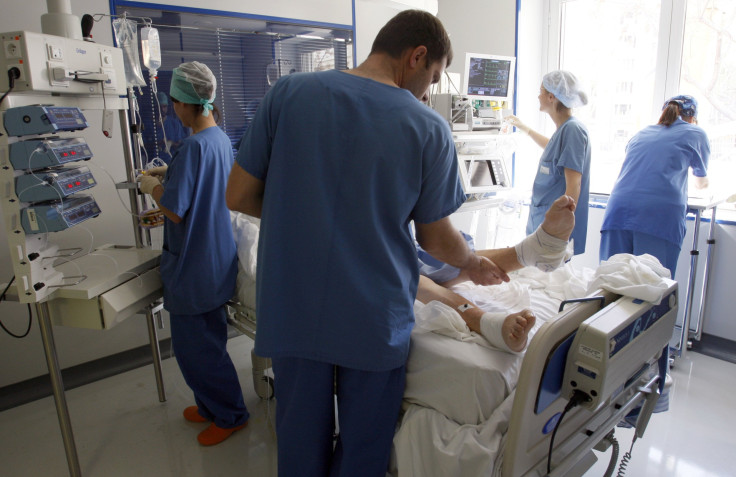Docs, Nurses May Overestimate Quality of Their Care

Doctors and nurses may overestimate the quality of the care they provide hospital patients in the hours leading up to a serious complication, according to a small new study.
After reviewing the records of 47 patients, Dutch researchers found that for more than half there were delays in recognizing that the patients' conditions were deteriorating in advance of a crisis, such as an unplanned admission to intensive care. Meanwhile nurses, doctors-in-training and specialists reported far fewer delays.
The disconnect between the quality of care a panel of experts found in the records and the quality of care the nurses and doctors thought they had delivered doesn't mean the patients were any worse off.
Instead, the researchers suggest it means the doctors and nurses may need to be more critical of their performances.
"You can't say anything about prediction of worse outcomes, because - in terms of unplanned ICU admissions - they are unplanned but not necessarily avoidable," said Dr. Jeroen Ludikhuize, the study's lead author from the Academic Medical Center in Amsterdam.
But Ludikhuize and his colleagues write in the journal Critical Care Medicine that doctors and nurses should be able to spot patients who are at risk for serious complications in the hours leading up to their needing cardiopulmonary resuscitation (CPR) or being put in an intensive care unit (ICU).
To see how the doctors and nurses thought they performed, Ludikhuize's team reviewed information on a sample of patients at their hospital who received CPR or were admitted to the ICU between April and July 2009. They then interviewed all of the nurses and doctors who were involved in the patients' care.
The researchers were able to collect information on 47 patients and interviews with 198 of their nurses and doctors.
Overall, the nurses and doctors thought highly of their ability to spot a patient's deteriorating condition. They also rated their communication, cooperation and coordination of care for the patient as high.
As for recognizing patients whose conditions were deteriorating, the researchers concluded that 38 should have been considered "at risk" in the two days before the complications occurred.
The researchers determined there was a delay in recognizing deterioration in 28, or 60 percent, of the 47 patients and no delay for 18 patients, or 38 percent.
Nurses, doctors-in-training and specialists only recognized a delay in 31 percent, 19 percent and 15 percent of the cases, respectively. The health care workers saw no delay in 65 percent, 71 percent and 80 percent of cases, respectively.
'VALUABLE LESSON'
Dr. Jeremy Kahn, a professor of critical care, medicine and health at the University of Pittsburgh School of Medicine, said he thinks the overall conclusions of the study are correct.
"Individual clinicians, when confronted with an adverse error that they may be responsible for, are relatively unlikely to allow themselves to think critically about their care," said Kahn, who was not involved in the new research.
The new study did have some limitations, he notes.
Specifically, the researchers had access to the patients' medical records during the review, but the nurses and doctors had to recall what they did from memory. Also, the study is from one center that didn't have a so-called rapid response system in place at the time.
A rapid response system uses a team of doctors that can mobilize at the first signs of deterioration in a patient to try to prevent serious complications.
With those limitations in mind, Kahn said the study still provides a "valuable lesson."
"This sort of critical self assessment is important in medicine. It shows there are more important steps that need to be taken to ensure a cultural change," he added.
That change, he said, would encourage nurses and doctors to report a patient's deteriorating condition early and wouldn't put them in the position to make errors.
"In health - and especially in hospital medicine - where the risk of adverse events and complications are high... Healthcare workers are human and shouldn't be put in the situation to make mistakes," he told Reuters Health.
The study is published in the journal Critical Care Medicine.



























